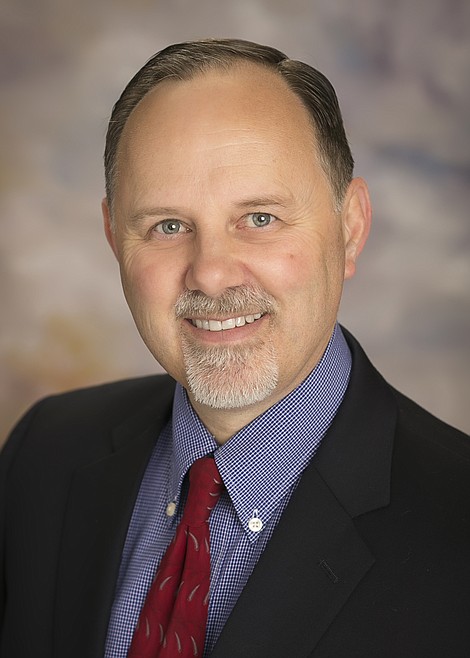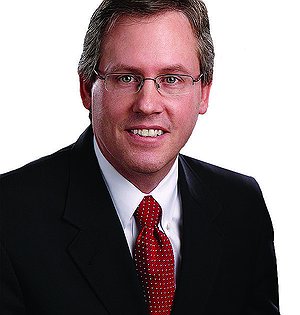Kovacs secretly recorded county staff, elected officials
COEUR d’ALENE — Kootenai County Assessor Béla Kovacs has secretly recorded conversations with his employees and other county elected officials, as well as at least one executive session of the county commissioners.
The information came to light Thursday, when county officials convened for a special meeting called by Kootenai County treasurer Steve Matheson.
Matheson said he learned of the recordings after asking Kovacs via email if the assessor had ever recorded their conversations. Kovacs initially denied that any such “public records” exist. But after seeking legal advice, Kovacs provided recordings to Matheson last Friday, according to emails obtained by The Press.
“Béla had disclosed and forwarded to me 15 conversations,” Matheson told commissioners Thursday. “It’s apparent from these recordings that I am not the only one he has been targeting.”
The Press has submitted a public record request for those audio recordings.
In Idaho, recording conversations is legal with the consent of at least one person involved in the conversation. But some county officials question whether the existence of the recordings means Kovacs has mishandled public records.
“If these recordings exist, they are public record,” said Kootenai County Prosecuting Attorney Stan Mortensen. “Public records should be stored, kept and saved on property that is owned or leased by the county. All electronic recordings related to county business should be saved and stored only on county hardware and software.”
Kovacs said he deleted some recordings that were “inaudible.”
Idaho law provides that county records may only be destroyed by resolution of the board of county commissioners upon advice of the prosecuting attorney. Authorization for destruction of public records may only be sought if certain criteria are met.
A public officer who “willfully destroys … any record kept as part of the official government records of the state or any county or municipality in the state” is guilty of a felony punishable by up to 14 years in prison.
“I didn’t destroy (the deleted recordings),” Kovacs said. “There was nothing there.”
“Can you prove there was nothing there?” Commissioner Bruce Mattare asked.
The assessor said he can’t recall if he used his cell phone or another device to make the recordings. He said he doesn’t know how many recordings he’s created and couldn’t reveal who he’s shared them with or how long he’s been in the practice of secretly recording his conversations with others. He maintained he only recorded conversations in which he participated.
Kovacs initially hesitated to speak on the matter with commissioners, asking repeatedly if he had an attorney to represent him.
“Recordings were made based on my reading of what defines a public record as personal notes,” Kovacs said. “I have done it with the intent of capturing essence of information because there’s lots of information that goes on so that I have facts straight.”
Under Idaho’s public record laws, “personal notes” created by public officials solely for their own use are not public records “as long as such personal notes are not shared with any other person or entity.”
Leslie Duncan indicated Kovacs may have opened the county to liability if he created and shared recordings in executive sessions when county officials discussed legal or personnel matters.
“I’m kind of disappointed in the fact that you have talked about mending relationships with employees in your office,” Duncan said. “I’m not sure how they’re going to be going forward knowing this has occurred.”
Others said Kovacs’ actions are unethical and undermines trust.
“I’m so incredibly disappointed to find that you’ve secretly been recording other elected officials and employees, including me,” chief deputy treasurer Jill Smith told Kovacs. “While what you have done is legal, in my opinion, and this is just my opinion, it’s not moral, it’s not ethical, it’s not respectful and it does nothing to establish or rebuild trust with the departments and the people you work with.”
Aubrey Hollenbeck, a former Kootenai County residential appraisal technician, expressed dismay that Kovacs recorded her and other employees without their knowledge. She figures Kovacs recorded her while she taught him to use the system used by the assessor’s office.
“I believe this is extremely unethical,” she said. “I was never informed I was being recorded. I was never asked. It was never mentioned to me.”
After Thursday’s meeting, Kovacs said he didn’t recall whether he recorded conversations with employees during his time as the purchasing director for Spokane County.
Public records revealed that Kovacs resigned from his Spokane County job in 2018 rather than be fired, following an investigation into his behavior.
Multiple Spokane County staff members who spoke with investigators described Kovacs as paranoid, saying he forbade some employees from speaking to one another without him present and even threatened to have office doors removed to prevent staff from having private conversations.
“Kovacs will arrive and then come to offices and stand in the doorway,” one employee told investigators. “If you are engaged in a conversation, Kovacs will merely stand there and listen to your conversation, making the participants very uncomfortable.”
“Kovacs is always afraid the staff is talking about him,” said another employee. “He demands having all doors open at all time.”
In his response to allegations made against him, Kovacs denied this.
“I do not, as a matter of practice, stand by doorways to listen to others,” he said. “On a few occasions, because some people in the office do speak loudly, it has been unavoidable to hear some things beings said and which may be awkward for me to hear.”



